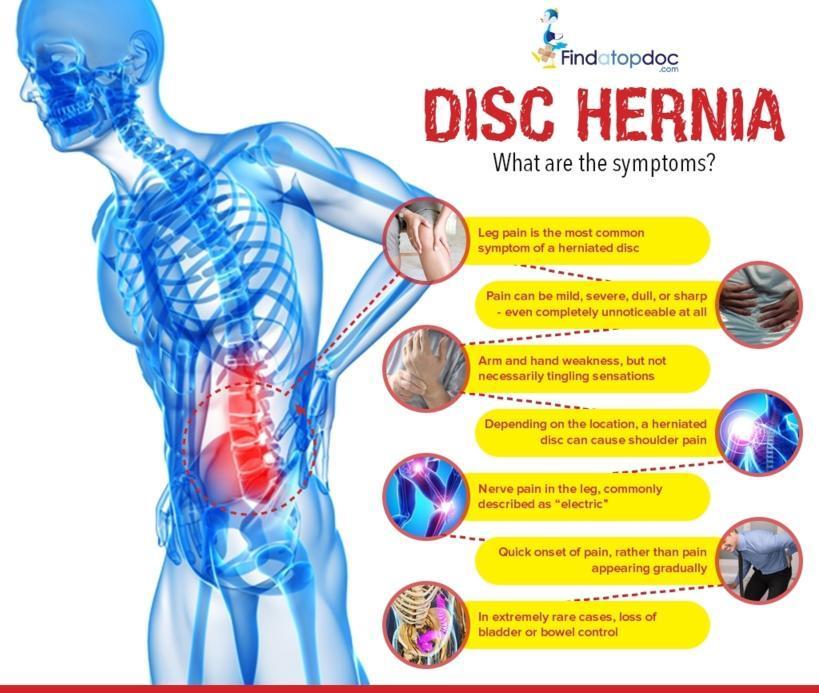
What are the symptoms of Disc Hernia?
Symptoms of a lumbar herniated disc vary widely—from moderate pain in the back and buttock to widespread numbness and weakness requiring immediate medical care. In the vast majority of cases, the pain eases within six weeks. But despite its short duration, the pain can be excruciating and make it difficult to participate in everyday activities and responsibilities. For some, the pain can become chronic and/or debilitating.These are some general characteristics of lumbar herniated disc pain:
Leg pain
The leg pain is typically worse than low back pain. If the pain radiates along the path of the large sciatic nerve in the back of the leg, it is referred to as sciatica or a radiculopathy.
Nerve pain
The most noticeable symptoms are usually described as nerve pain in the leg, with the pain being described as searing, sharp, electric, radiating, or piercing.
Variable location of symptoms
Depending on variables such as where the disc herniates and the degree of herniation, symptoms may be experienced in the low back, buttock, front or back of the thigh, the calf, foot and/or toes, and typically affects just one side of the body.
Neurological symptoms
Numbness, a pins-and-needles feeling, weakness, and/or tingling may be experienced in the leg, foot, and/or toes.
Foot drop
Neurological symptoms caused by the herniation may include difficulty lifting the foot when walking or standing on the ball of the foot, a condition known as foot drop.
Lower back pain
Lower back pain may be present, but not always. The low back pain may be described as dull or throbbing, and may be accompanied by stiffness. If the herniated disc causes lower back muscle spasm, the pain may be alleviated somewhat by a day or two of relative rest, applying ice or heat, sitting in a supported recliner or lying flat on the back with a pillow under the knees.
Pain that worsens with movement
Pain may follow prolonged standing or sitting, or after walking even a short distance. A laugh, sneeze, or other sudden action may also intensify the pain.
Pain that worsens from hunching forward
Many find that positions such as slouching or hunching forward in a chair, or bending forward at the waist, makes the leg pain markedly worse.
Quick onset
Lumbar herniated disc pain usually develops quickly, although there may be no identifiable action or event that triggered the pain.
Numbness or tingling
People who have a herniated disk often experience numbness or tingling in the body part served by the affected nerves.
Weakness
Muscles served by the affected nerves tend to weaken. This may cause you to stumble, or impair your ability to lift or hold items.
Lumbar herniated disc symptoms are usually more severe if the herniation is extensive. Pain can be milder and limited to the low back if the disc herniation does not affect a nerve. In some cases, low back pain or leg pain that occurs for a few days then goes away is the first indication of a herniated disc.


